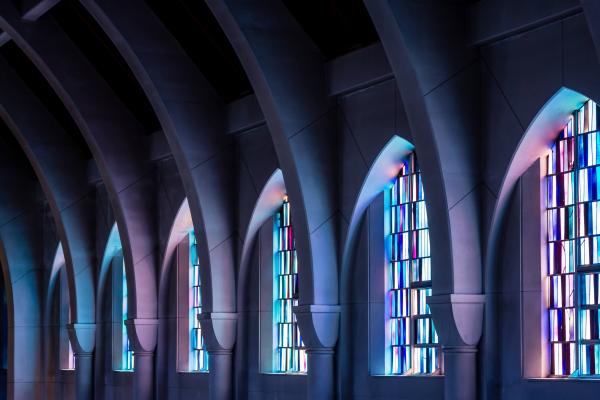Black pastors have been led to make critical revisions in the areas of worship, congregational care and daily ministry operations. Now, with COVID-19, African-American pastors have a unique place in bringing hope and helping congregants deal with grief and fear. I spoke with four pastors and asked them how they are interacting with their congregations during this pandemic and what lessons we can learn from them.
This interview has been edited for length and clarity.
Jamar A. Boyd, II, Sojourners: What is your church doing to survive this moment as it adapts while maintaining normalcy?
Rev. Dr. Joseph L. Williams, Salem Bible Church: We’re taking four pillars — worship, community, accountability and ministry and using digital platforms to do so. I think one of the errors of the local church is putting the emphasis on worship, which is just streaming service, but you’re missing ministry, community, and accountability. We’re trying to maximize technologies — video conferences and services that provide accounting data and updating data on how many people are engaged or dropped off so we can get a better assessment of congregational health in these times.
Boyd: How has this pandemic impacted you as an educator and pastor?
Rev. Jamaal Wilcher, Moses Missionary Baptist Church: Being bi-vocational, this has given me time to think of ministry outside of the box and to achieve some goals that would have been more challenging if I were still in my normal schedule. Yet, as an educator, it’s been super frustrating. The dot has continued to move in the school district’s expectation, because there was no pandemic response plan in place. Grief is another addition because my seniors were my first students; I miss all my students.
Overall, the time away has created some questions about what I’m doing and what I should be doing. It has made me question whether I’m living out my can or my call.
Boyd: How do you as a faith leader enable people to wrestle with faith and reality while retaining hope?”
Bishop Linwood E. Dillard, Citadel of Deliverance COGIC: I think that the word of God gives us the remedy for a lot when crisis comes. I think that the reality of our theology has to do with the theodicy of God — why does God allow bad things to happen? There’s the communicating, conveying, and teaching about managing crisis; how does God view crisis? Is he the author of crisis or is the crisis that we see an experience in our world as a result of something else or someone else? So really, [we are] educating our people, teaching them the word of God, and using scripture as an example of how to survive almost any kind of crisis.
I don't know of anything that can happen in our current contemporary world, that the word of God does not speak to — even pandemics, pestilence, earthquakes, and so many other things that we see today. Scripture gives us a reference and we see the hand of God as it worked in the lives of so many people. If you take crisis out of the Bible, I wonder how much of a Bible we would have. Crisis is a part of our faith and surviving here. Paul reminds us, 'I can do all things through Christ that strengthens me,' so strengthening the people of God from a spiritual context, giving them hope from the word of God [ is important.]
Boyd: What does community engagement or congregational care look like when social distancing orders are lifted, and activities resume?
Rev. Dr. Brandon T. Crowley, Myrtle Baptist Church: The church is being called back to fulfilling the initial responsibility of ministering to the human condition. This pandemic has brought out the human condition in a way that it never has before. The reality of our humanity as a reality of our mortality is more real now than it ever has been. Traumatic experiences that [have] caused us to have an awakening, in which we came to grips with that our own mortality, most human beings have not experienced that. This [pandemic] creates a huge cavity, a huge opportunity, for the church to then start addressing, redressing, and bringing up the concerns of the human condition. We have always made meaning out of the world, but now, the church has an opportunity to once again jump into the conversation of maintaining and controlling the enterprise of making sense of the human condition.
The fourth question that I would add to your inquiry is not one that I can answer, but one that will be left up to history — how will the church respond to this moment?
The future of the church is weighing in the balance, the relevancy of Christian theology is weighing in the balance, and how we, as ordained practitioners, have the faith to reinterpret it and reimagine it. It will either secure its success, continue its neutrality, or make wait for its demise.
Got something to say about what you're reading? We value your feedback!






